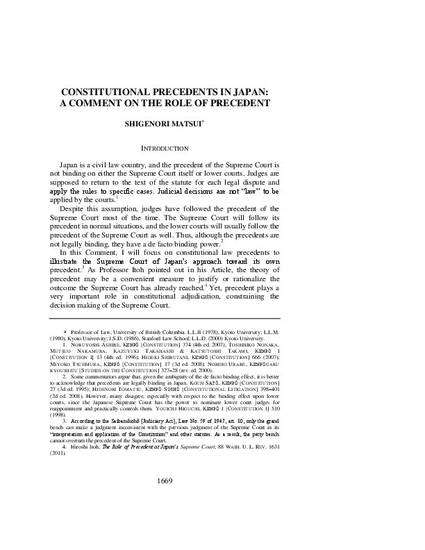
- Japan; Constitutional Law; Supreme Court; Precedent
Japan is a civil law country, and the precedent of the Supreme Court is not binding on either the Supreme Court itself or lower courts. Judges are supposed to return to the text of the statute for each legal dispute and apply the rules to specific cases. Judicial decisions are not law to be applied by the courts. However, since judges have followed the precedent of the Supreme Court most of the time, these precedents have a de facto binding power even though they are not legally binding. In this Comment, the author focuses on constitutional law precedents to illustrate the Supreme Court of Japan’s approach toward its own precedent. The theory of precedent may be a convenient measure to justify or rationalize the outcome the Supreme Court has already reached. Yet, precedent plays a very important role in constitutional adjudication, constraining the decision making of the Supreme Court.
